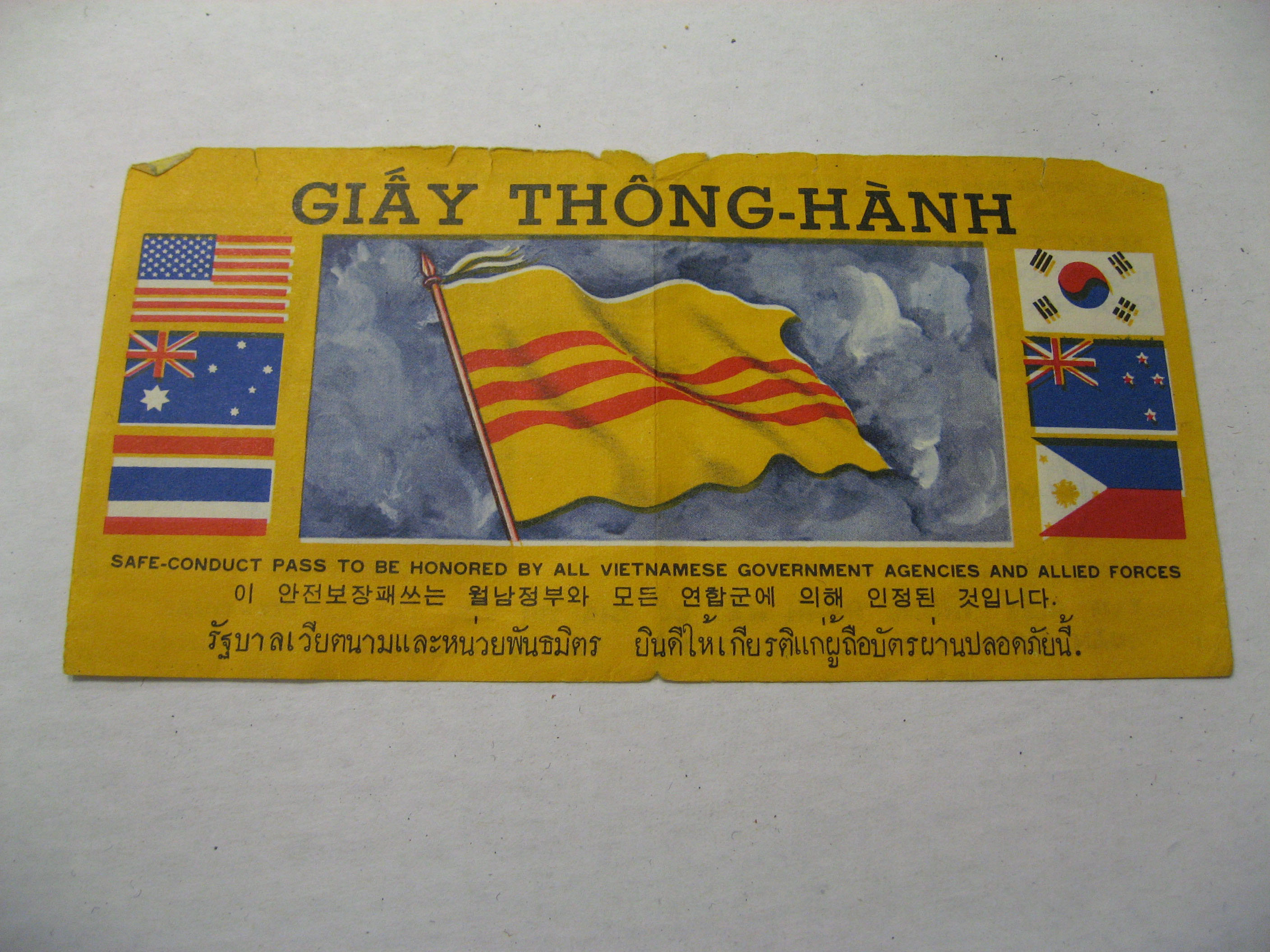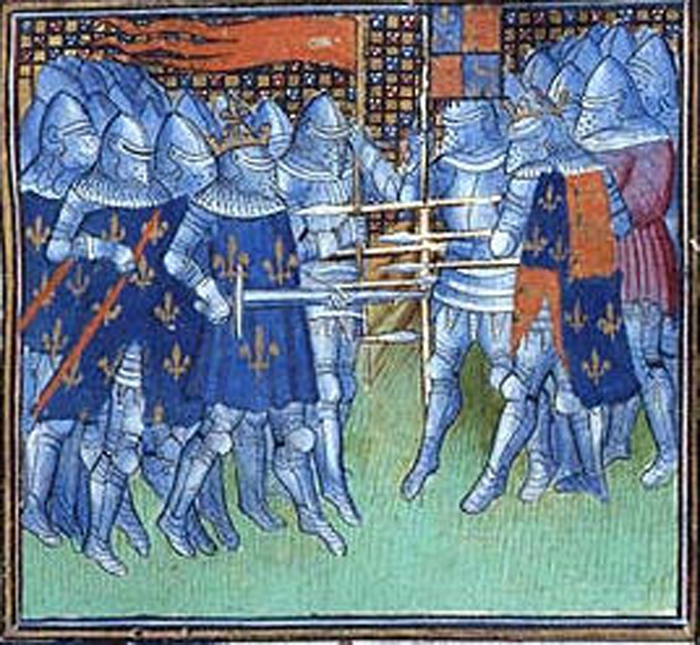|
No Quarter
The phrase no quarter was generally used during military conflict to imply combatants would not be taken prisoner, but killed. According to some modern American dictionaries, a person who is given no quarter is "not treated kindly" or "treated in a very harsh way". Etymology The term may originate from an order by the commander of a victorious army that they will not quarter (house) captured enemy combatants. Therefore, none can be taken prisoner and all enemy combatants must be killed. A second derivation, given equal prominence in the ''Oxford English Dictionary'' (''OED''), is that quarter (n.17) can mean "Relations with, or conduct towards, another" as in Shakespeare's ''Othello'', Act II, scene iii, line 180, "Friends all ... In quarter, and in termes, like bride and groome". So "no quarter" may also mean refusal to enter into an agreement (relations) with an enemy attempting to surrender. The ''OED'' mentions a third possible derivation but says "The assertion of De ... [...More Info...] [...Related Items...] OR: [Wikipedia] [Google] [Baidu] |
Prisoner Of War
A prisoner of war (POW) is a person who is held captive by a belligerent power during or immediately after an armed conflict. The earliest recorded usage of the phrase "prisoner of war" dates back to 1610. Belligerents hold prisoners of war in custody for a range of legitimate and illegitimate reasons, such as isolating them from the enemy combatants still in the field (releasing and repatriating them in an orderly manner after hostilities), demonstrating military victory, punishing them, prosecuting them for war crimes, exploiting them for their labour, recruiting or even conscripting them as their own combatants, collecting military and political intelligence from them, or indoctrinating them in new political or religious beliefs. Ancient times For most of human history, depending on the culture of the victors, enemy fighters on the losing side in a battle who had surrendered and been taken as prisoners of war could expect to be either slaughtered or enslaved. Ea ... [...More Info...] [...Related Items...] OR: [Wikipedia] [Google] [Baidu] |
Battle Cry
A battle cry or war cry is a yell or chant taken up in battle, usually by members of the same combatant group. Battle cries are not necessarily articulate (e.g. "Eulaliaaaa!", "Alala"..), although they often aim to invoke patriotic or religious sentiment. Their purpose is a combination of arousing aggression and esprit de corps on one's own side and causing intimidation on the hostile side. Battle cries are a universal form of display behaviour (i.e., threat display) aiming at competitive advantage, ideally by overstating one's own aggressive potential to a point where the enemy prefers to avoid confrontation altogether and opts to flee. In order to overstate one's potential for aggression, battle cries need to be as loud as possible, and have historically often been amplified by acoustic devices such as horns, drums, conches, carnyxes, bagpipes, bugles, etc. (see also martial music). Battle cries are closely related to other behavioral patterns of human aggression, such ... [...More Info...] [...Related Items...] OR: [Wikipedia] [Google] [Baidu] |
Safe Conduct
Safe conduct, safe passage, or letters of transit, is the situation in time of international conflict or war where one state, a party to such conflict, issues to a person (usually an enemy state's subject) a pass or document to allow the enemy alien to traverse its territory without harassment, bodily harm, or fear of death. Safe conduct is only granted in exceptional circumstances. It may be given to an enemy to allow retreat under surrender terms, or for a meeting to negotiate; to a stateless person; or to somebody who for some reason would normally not be able to pass. A vanquished enemy can also be given, or offered quarter, i.e. be spared, be promised or guaranteed mercy. The term 'safe conduct' is also used to mean the document authorizing this security. In Islamic law, safe conduct or pledge of safety (''amān'') can be granted to foreigners or dhimmi residents ('' musta'min'') while they travel or reside in Islamic-ruled lands. In the early Middle Ages, during some ... [...More Info...] [...Related Items...] OR: [Wikipedia] [Google] [Baidu] |
Oriflamme
The Oriflamme (from Latin ''aurea flamma'', "golden flame"), a pointed, blood-red banner flown from a gilded lance, was the battle standard of the King of France in the Middle Ages. The oriflamme originated as the sacred banner of the Abbey of St. Denis, a monastery near Paris. When the oriflamme was raised in battle by the French royalty during the Middle Ages, most notably during the Hundred Years War, no prisoners were to be taken until it was lowered. Through this tactic they hoped to strike fear into the hearts of the enemy, especially the nobles, who could usually expect to be taken alive for ransom during such military encounters. In French, the term "''oriflamme''" has come to mean any banner with pointed ends, by association with the form of the original. Legendary origin The Oriflamme was mentioned in the eleventh-century ballad the '' Chanson de Roland'' (vv. 3093–5) as a royal banner, first called ''Romaine'' and then ''Montjoie''. According to legend, Charlema ... [...More Info...] [...Related Items...] OR: [Wikipedia] [Google] [Baidu] |
Ordinance Of No Quarter To The Irish
The ordinance of no quarter to the Irish was a decree of the English Long Parliament passed on 24 October 1644 in response to the Irish Confederation of Kilkenny threat to send troops from Ireland to support King Charles I during the English Civil War. The decree ordered Parliamentary officers to give no quarter to Irish soldiers fighting in England and Wales, and Irish Confederate sailors at sea who surrendered. Context The Kilkenny Confederacy sent 2,000 troops in three regiments under the command of Alasdair MacColla to support Montrose's Royalist army in Scotland who were fighting against the Covenanters in 1644. During the years 1643 and 1644 they also promised to send 10,000 troops to England and Wales. The troops were never sent, because the negotiations with Charles I broke down over the public practice of Catholicism and the independence of the Irish Parliament. A ceasefire deal between the Irish Confederates and English Royalists did result in the return of some 5, ... [...More Info...] [...Related Items...] OR: [Wikipedia] [Google] [Baidu] |
List Of Established Military Terms This is a list of established military terms which have been in use for at least 50 years. Since technology and doctrine have changed over time, not all of them are in current use, or they may have been superseded by more modern terms. However, they are still in current use in articles about previous military periods. Some of them like ''camouflet' |


